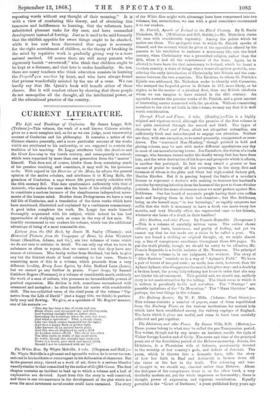his case with considerable ingenuity. Among the points which he
makes are these. The apologetic tone in which St. Patrick speaks of himself, and the account which he gives of the opposition offered by his- parents to his resolution to embrace a missionary life, suit the third century, when Christianity was a proscribed religion, rather than the fifth, when it had all the cownenance of the State. Again, he is allowed to have been the first missionary to Ireland, which he found a heathen country, a state of things which is not altogether probable, con- sidering the early introduction of Christianity into Britain and the com- merce between the two countries. The Eroticus, to whom St. Patrick's Epistle was addressed, Mr. Nicholson seeks to identify with Carausius, who usurped the Imperial power in Britain in 287, more likely, as he argues, to be the master of a piratical fleet, than any British chieftain whom we can imagine to have existed in the fifth century. An. appendix contains the genuine works of St. Patrick, and a great amount of interesting matter connected with the question. Without committing ourselves to the view sot forth in this volume, we may say that it is well worth consideration.






























 Previous page
Previous page